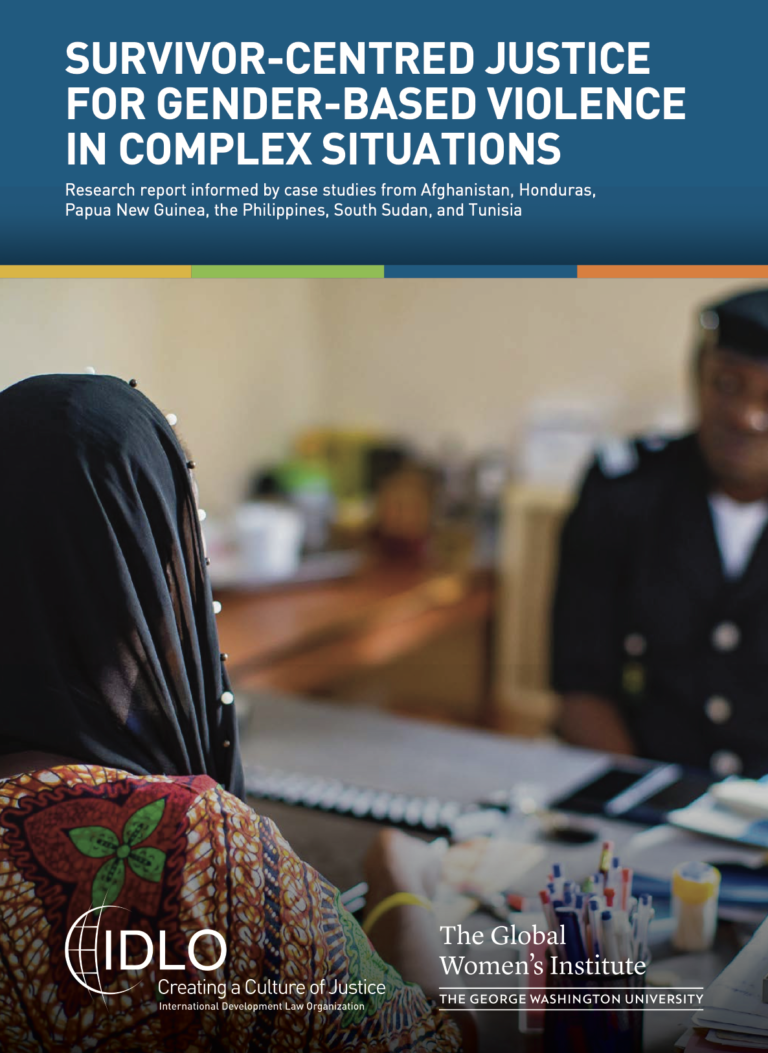Gender-based violence (GBV) against women is a human rights violation and is both a cause and consequence of gender inequality. GBV is globally prevalent, takes multiple forms and affects women throughout their life cycle, irrespective of income levels or social status. In turn, gender inequality, as well as intersecting forms of discrimination – based on age, sexual orientation, gender identity, ethnicity, migrant or internally displaced person (IDP) status, health status, etc. – have a negative impact on women’s ability to report violence and access justice.
Women and girls’ vulnerability to violence is exacerbated in complex contexts, such as conflict, organized crime, health emergencies and the climate crisis, where GBV is more common and more severe. In complex settings, women face heightened difficulties in accessing justice and protection due to weakened justice systems or disrupted justice and service delivery, as well as low levels of trust in State institutions. Other challenges include the inability or unwillingness of States to address GBV, particularly in conflict situations, or the de-prioritization of GBV responses, as evidenced during the COVID-19 pandemic. In situations of crisis, women are more likely to experience violence and less likely to receive justice.
IDLO, in partnership with GWI at George Washington University, conducted research in six countries across the globe with the aim to identify survivor-centred approaches to addressing GBV in complex situations. The country case studies were selected to provide different perspectives of complexity in accessing justice and an analysis of diverse justice mechanisms dealing with GBV in situations of conflict, organized crime, climate disasters and health emergencies, often intersecting with contexts of legal pluralism and political transition.

